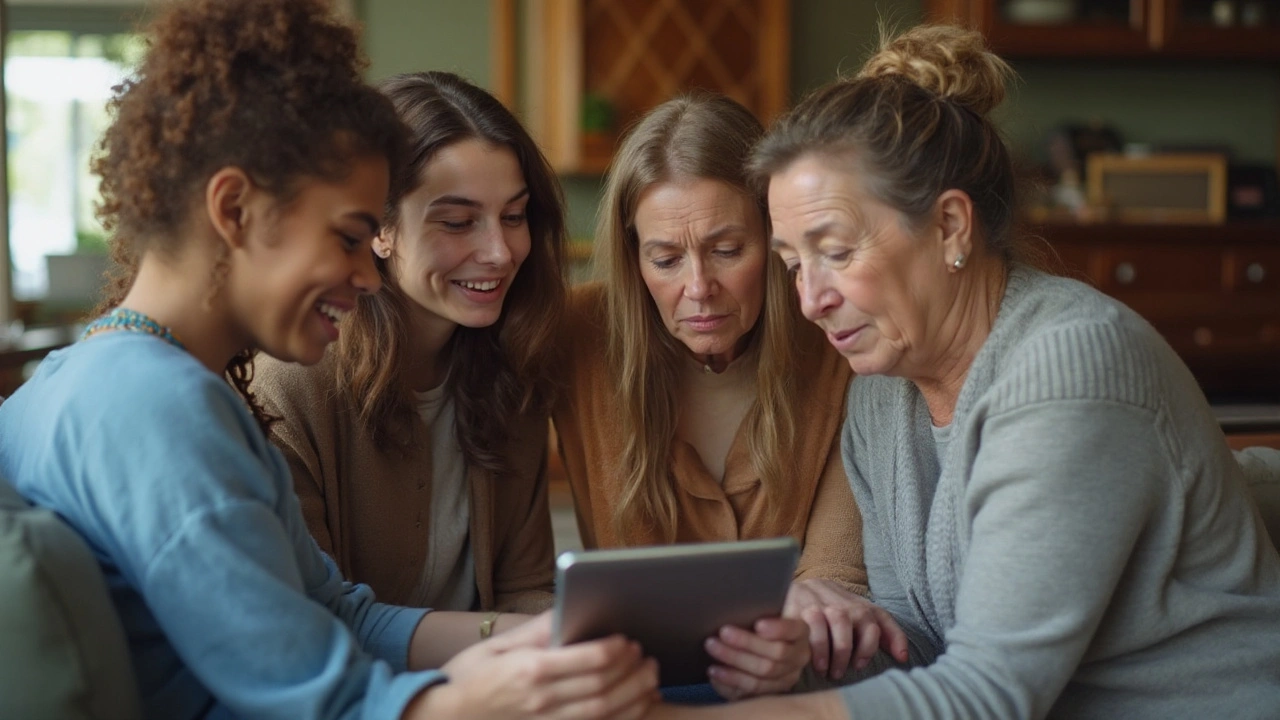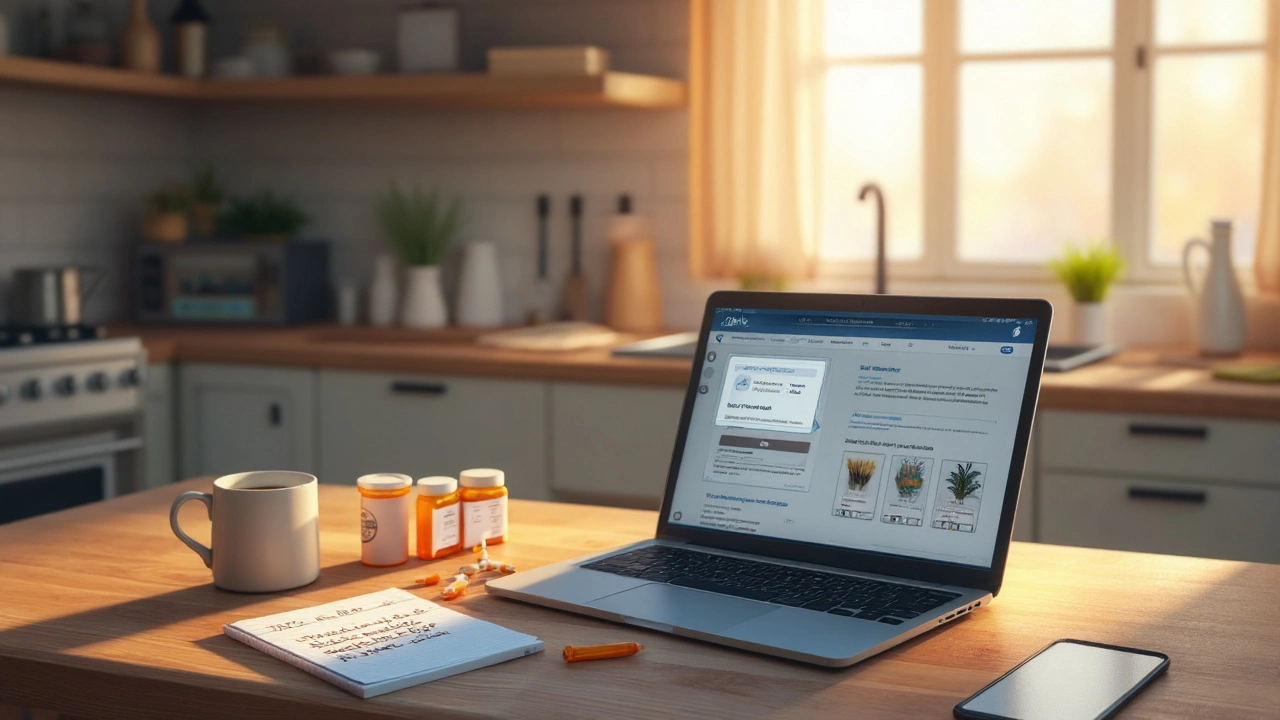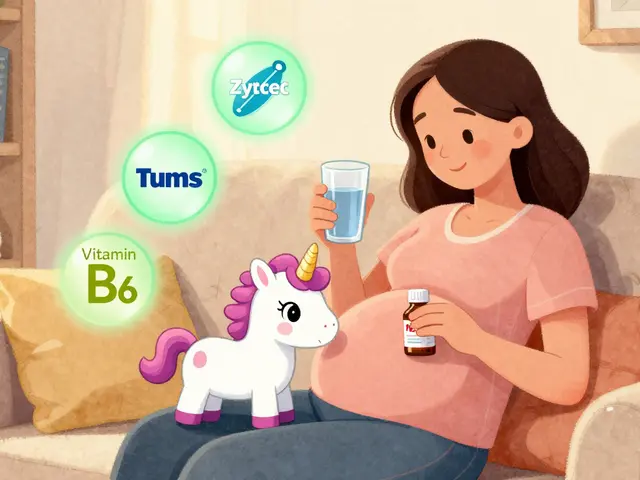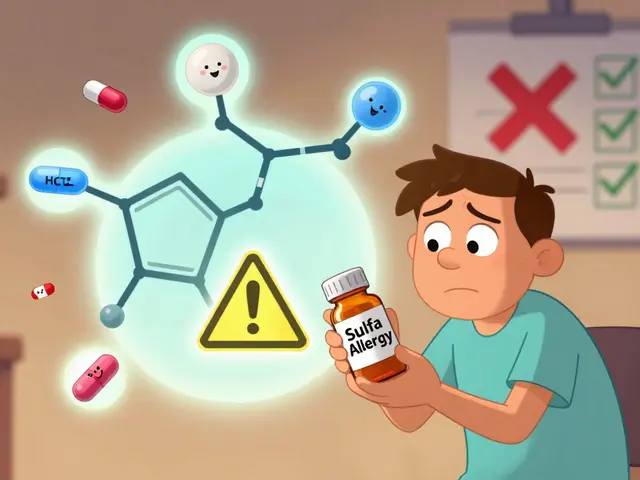You order pizza, trainers, and birthday presents from your phone. But when it’s antibiotics or painkillers you need, would you trust a website like dreamlandpharmacy.com? Staring at a screen, wallet ready, wondering if your prescription will actually land on your doorstep or if you’ll just be refreshing the tracking page in vain – it’s a real dilemma. The idea of buying medicine with a click looks easy, but it’s not something to dive into blindly. With surging online pharmacy options, knowing which ones keep you safe (and which ones can empty your bank account, or worse) is suddenly a must-have skill, not just for the tech whizzes.
How Dreamlandpharmacy.com Works in the Wild World of Online Pharmacies
The online pharmacy scene has exploded since the pandemic. Lockdowns and social distancing meant popping out to Boots wasn’t an option – even Grandma learned to click “add to cart.” In the UK, the stats speak volumes: the General Pharmaceutical Council reports the number of registered online retailers shot up by 35% between 2020 and 2024. That’s a lot of pill bottles in brown boxes. Dreamlandpharmacy.com rides this wave, promising straightforward medication delivery to your front door, even skipping the GP queuing drama entirely in some cases. No more scribbly scripts, no uncomfortable pharmacy small talk. Just fast refills, discreet delivery, job done.
Most folks want to know: how does it really work? On the surface, dreamlandpharmacy.com feels pretty similar to most online shops. You pick your meds from their catalogue – think everything from cholesterol tablets to hay fever sprays – then either upload your prescribed script, or, for certain products, fill out a medical questionnaire. These forms aren’t just tick-boxes; the site claims registered pharmacists review your responses to make sure your order is safe and makes sense. Only when approved, you pay up and wait for Royal Mail or another courier to ring the bell. The average delivery time (if you believe Trustpilot user reviews and their own FAQ) runs from 1 to 4 days.
But what about bricks-and-mortar rules? UK law says prescription medication can’t be sold online without a valid prescription and oversight by a registered pharmacist. Genuine sites display registration badges for the General Pharmaceutical Council and, before Brexit, the EU’s distance selling logo. Dreamlandpharmacy.com lists its GPhC number right at the bottom. Frankly, that’s step one. Double-check the number using the GPhC’s official website; fake sites have been caught pasting up random (or even real) numbers. You don’t want to be a mug.
| Key Fact | Dreamlandpharmacy.com Details |
|---|---|
| Operating Since | 2022 |
| Prescription Policy | Requires valid prescription or online questionnaire |
| Average Delivery Time | 1-4 days (UK) |
| Regulatory Registration | GPhC registered (number listed) |
| Accepted Payments | Credit/Debit Card, PayPal |
| Trustpilot Score (August 2025) | 4.2/5 |
| Restricted by Country | UK residents only |
Something that pops up often in honest reviews is discretion. The site promises unbranded packaging, no visible pharmacy labels, and vague sender names on parcels – handy if you don’t fancy your flatmate nosing in your business. While you might smirk, for some, privacy is a deal breaker, especially for treatments of sensitive nature. I wouldn’t want Tamsin’s little hands opening the wrong box either. Safety seals and tamper-proof bottles are standard (and should be, elsewhere too). No medication should ever show up looking sketchy or unsealed. If it does, return it instantly and flag the order.
What Makes a Legit Online Pharmacy? Tips to Spot the Real from the Rubbish
Here’s where things get dicey. For every proper online pharmacy, there’s a dodgy twin with bad intentions. Counterfeit pills aren’t just a Hollywood plot; the World Health Organization reckons about 10% of medicines circulating in the world are fake, especially from anonymous online sellers. You want the real thing, not sugar pills pressed in someone’s basement.
So, how do you suss out a solid pharmacy like dreamlandpharmacy.com from a scam site? There are a few clues to watch for, common mistakes included. First, the registration badge: click through to see their GPhC listing. Spoiler: if there’s no clickable link, tread cautiously. Then, pricing. If the costs sound too good to be true (think prescription meds for pennies), alarm bells. These days, most proper online pharmacies stick within 5-10% of high street prices – the discount is usually in convenience, not in bottom-dollar bargains.
- Look for real UK contact info – a phone number and active email. Even with 24/7 web chat, a physical address should be easy to find.
- Check reviews away from their site: Trustpilot, Google, Reddit forums. Ignore perfect 5-star streaks (nobody’s that good) and pay attention to how they handle complaints.
- Never trust a pharmacy offering prescription meds without a prescription, even after a quick “online doctor” quiz. That’s illegal in Britain.
- Always find plain language privacy and refund policies. Moneyback guarantees aren’t the norm for opened meds, but returns for errors or corrupted packages should be allowed.
- Watch for vague language on their About page. If every “review” is a glowing 3-sentence, cardboard-sounding promo, that’s fishy.
Dreamlandpharmacy.com ticks most of the safe boxes. Their prices float in the average band, and their address and regulatory links check out. That said, no site’s immune to mistakes. Some Trustpilot users moan about delivery delays or customer service gaps; others praise quick turnarounds. Consistency is always the issue. If you’re new, start with a lower-value order and see how it goes before you commit to bigger prescription spends. That’s what I’d tell anyone I know, from my mates to the neighbours at the school run.

Advantages of Online Pharmacies You Might Not Expect
At first glance, online pharmacies are just about skipping queues and moving your medicine cabinet shopping to your laptop. But there’s some real perks – ones you might not have clocked. The obvious is always time. For busy parents like me, cutting out the after-school rush to the chemist is brilliant. When Tamsin had a lingering throat infection last winter, the last thing I wanted was to queue up with a sniffly five-year-old in a pharmacy full of germs.
Another plus is inventory. You won’t see “out of stock” stickers as often as you do on the high street. Proper online shops source from multiple suppliers, not just the one wholesaler. And if you have a rare condition that needs specialty meds, you’re way more likely to find it online. They also send reminders for repeat prescriptions, so you’re never left empty-handed (or remembering at 11pm, like me, when you’re almost out of asthma inhalers). As for privacy, buying online is a lifesaver. Imagine needing treatment for something sensitive – like hair loss, STIs, or even anxiety pills. At dreamlandpharmacy.com you get to avoid awkward face-to-face conversations or judgemental looks.
And then there’s the paperwork. Online pharmacies typically keep digital copies of your prescription and order history. This makes tracking your healthcare much simpler and helps if you ever need a record for work or travel. Their regular updates also flag potential recalls, so you’re not caught out with dodgy meds if there’s ever a manufacturing issue. Since 2023, UK pharmacies are required to notify customers within 48 hours if their medication is recalled – and most online platforms, including dreamlandpharmacy.com, use email and SMS for these alerts. That’s faster than waiting for your local pharmacy to put up a notice by the till.
The COVID-19 pandemic forced many people to try online health solutions they wouldn’t have considered before. NHS Digital reports a staggering 87% increase in electronic prescription services usage since 2020. Given most online pharmacies let you integrate your NHS prescription service, it’s just less faff. But while convenience is a major draw, the spread to rural communities is also game-changing. Nobody should be trekking miles just for a monthly prescription. The reach of a solid online pharmacy bridges that gap, quite literally delivering healthcare to your door.
Risks and Red Flags: Keeping Your Family (and Wallet) Safe
Of course, it’s not all sunshine. Buying medication online can be risky if you’re not careful. You might think your order is on its way, but if you stumble onto a knock-off website, you could lose money or even get fake, harmful drugs. According to the UK Medicines and Healthcare products Regulatory Agency (MHRA), seizures of counterfeit medication jumped by 56% between 2022 and 2024. Most weren’t shady back-alley deals but came from slick-looking, fake websites targeting unsuspecting first-timers.
The most common scam is simple: you place an order, the meds never arrive, and your card details end up somewhere in Russia. Even if you get a package, the pills might not match their labels—risking not just wasted cash, but your health. That’s why double-checking a site’s credentials isn’t boring admin; it’s vital. An easy thing I do: pop their GPhC number into the regulator’s checker, confirm it’s real, and look up the company house record for the business. Most proper pharmacies now also make you complete a consultation, even for repeat prescription requests, so nobody becomes the next headline for overprescribed anything. That’s a good sign – it means there’s an actual pharmacist involved, not just a robot ticking boxes.
If your meds don’t arrive in the condition described, are the wrong dosage, or you have any doubt, don’t touch them. Take a photo and contact the pharmacy right away. Reliable sites – dreamlandpharmacy.com included – will sort replacements quickly. But if you get stonewalled or the reply is a vague email in broken English, you likely stumbled into a dark alley on the web. Stick to cards with chargeback protection (PayPal is strong here), and never do bank transfers for first-time orders.
My own family rule: talk to your GP or at least a pharmacist if trying a new drug, even from a trusted website. The virtual consultation isn’t a full substitute for real medical history – for tricky cases, nothing beats human advice. If your child or elderly parent is getting repeat deliveries, help them keep track, and do a spot check on pill appearance once in a while. Far safer to be called paranoid than to risk their health.
If you want extra peace of mind, look for pharmacies that work closely with established NHS services or display their membership with the National Pharmacy Association. Checks like these don’t just protect you; they keep our whole online health ecosystem cleaner. Sites that put patient safety first—by demanding prescriptions, offering pharmacist support, and keeping solid review trails—make everyone’s life easier.





One comment
They list the GPhC number and require prescriptions so that already separates them from the random fly-by-night shops.
Start small with a one-off order, check the parcel when it arrives, and then decide if you want to trust them for repeat meds.
Minimal fuss, privacy-friendly packaging, and reminder emails are exactly what busy people need.
Keep payment on PayPal or a card with chargeback so you have options if things go sideways.
No nonsense: if the price is too low, it’s a trap.
Genuine pharmacies don't undercut the high street by huge margins because margins for regulated meds are small.
Check the About page, the contact details, and refuse to pay by bank transfer for first orders.
Also, don't be lazy and skip looking up the company on Companies House; it takes two minutes and tells you a lot.
Verify the GPhC number yourself before buying anything.
Nice to see emphasis on privacy and unbranded packaging, that matters for many people.
Also good that they use pharmacist reviews for questionnaires, that adds a safety layer most sketchy sites skip.
Integration with NHS prescription services is a real plus and it makes continuity easier for long term meds.
Digital records and recall alerts reduce the chance of missing important safety notices.
If you live rurally, delivery convenience is genuinely life changing, especially for chronic conditions.
Start with small orders to test delivery and service responsiveness, that’s practical and keeps risk low.
Trustpilot scores are useful but dig into the negative reviews to see how complaints were handled.
Payment methods matter, PayPal gives an extra layer of protection that a bank transfer does not.
Solid point about starting with a low value order, that lowers exposure and gives you a truth test of their operations.
Also worth keeping a simple checklist when the meds arrive - check seals, expiry dates, and batch numbers and note them down.
Keeping a digital photo record helps if you need to escalate and show evidence to regulators.
If repeat prescriptions are in play, set calendar reminders and compare pill appearance with earlier refills.
For family members who struggle with tech, offer to manage accounts and deliveries to avoid missed doses.
Use the online route for convenience but keep a paper trail.
Receipts matter.
Receipts and order confirmations saved to a folder are lifesavers when dealing with insurers or GPs.
Also pair deliveries with someone reliable at home so meds aren't left lying around.
For elderly relatives, sign them up for SMS reminders and make sure they know how to contact customer support.
Good to see advice about using chargeback options, that protects people a lot :)
The bit about tamper-proof seals should be non negotiable for any legit pharmacy.
They tick most boxes here, and the GPhC registration is the baseline.
Still, it's smart to cross-check other sources like MHRA notices and local pharmacy networks.
For folks in smaller towns, this kind of service fills a gap in access and can cut travel time dramatically.
Use official channels for serious meds and keep the GP in the loop for anything that changes dosage or has side effects.
Enjoy the convenience but treat online pharmacies like a tool, not a replacement for proper medical oversight.
😊Double check registration numbers, cross reference with the regulator, and never accept a single source of verification as sufficient evidence of legitimacy.
Look at the business structure, the public filings, the directors, and the company address; these are small checks but they reveal a lot about operational transparency.
Consider the supply chain; legitimate pharmacies source from licensed wholesalers, not anonymous suppliers that appear and disappear overnight; knowing where the stock comes from helps you gauge consistency and safety.
Review analysis matters; aggregate the good, the bad, and the middling reviews and pay attention to patterns rather than isolated praise or complaints; look for recurring issues with delivery, packaging, or product quality because those indicate systemic problems.
Payment security is critical; insist on card or reputable third party services, and if a vendor pushes an account transfer you're outside normal consumer protections and should step back immediately.
Examine their clinical governance; is there a named superintendent pharmacist, and do they publish their clinical oversight policies openly; absence of such named accountability is a red flag and should not be brushed off.
Investigate returns and recall handling; modern pharmacies should have clear procedures that prioritise patient safety and outline compensation and replacement policies in plain language.
Check for integration with NHS or equivalent systems where applicable because that indicates both regulatory alignment and practical interoperability, making continuity of care smoother and safer for patients.
Privacy policies must be readable and explicit; vague statements about data handling are designed to obscure real practices and can expose you to unwanted sharing of medical information.
Consider reporting mechanisms; a serious provider will offer an easy way to escalate concerns and will show public evidence of complaint resolution, including examples of refunds, replacements, or corrective action where warranted.
Test the customer service yourself before committing to a high value order; a brief exchange will reveal response times, clarity of communication, and whether staff seem knowledgeable or are reading scripted replies.
For chronic medications, consistency matters more than one-off price savings; establish a rhythm with a reliable supplier rather than bounce around chasing bargains because variability increases the chance of missed doses or counterfeit exposure.
Finally, keep detailed records of every order, correspondence and the medication packaging; documentation is invaluable if you need to pursue regulatory action or a chargeback and it keeps your own medical history accurate.
Being meticulous is not paranoia; with healthcare, prudence is sanity; these checks are quick and they dramatically lower your risk while preserving the convenience online pharmacies promise.